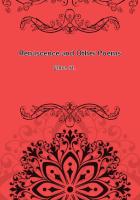In the province of Holland every house is taxed at two and a half per cent of its value, without any regard either to the rent which it actually pays, or to the circumstances of its being tenanted or untenanted.There seems to be a hardship in obliging the proprietor to pay a tax for an untenanted house, from which he can derive no revenue, especially so very heavy a tax.In Holland, where the market rate of interest does not exceed three per cent, two and a half per cent upon the whole value of the house must, in most cases, amount to more than a third of the building-rent, perhaps of the whole rent.The valuation, indeed, according to which the houses are rated, though very unequal, is said to be always below the real value.When a house is rebuilt, improved, or enlarged, there is a new valuation, and the tax is rated accordingly.
The contrivers of the several taxes which in England have, at different times, been imposed upon houses, seem to have imagined that there was some great difficulty in ascertaining, with tolerable exactness, what was the real rent of every house.
They have regulated their taxes, therefore, according to some more obvious circumstances, such as they had probably imagined would, in most cases, bear some proportion to the rent.
The first tax of this kind was hearth-money, or a tax of two shillings upon every hearth.In order to ascertain how many hearths were in the house, it was necessary that the tax-gatherer should enter every room in it.This odious visit rendered the tax odious.Soon after the revolution, therefore, it was abolished as a badge of slavery.
The next tax of this kind was a tax of two shillings upon every dwelling-house inhabited.A house with ten windows to pay four shillings more.A house with twenty windows and upwards to pay eight shillings.This tax was afterwards so far altered that houses with twenty windows, and with less than thirty, were ordered to pay ten shillings, and those with thirty windows and upwards to pay twenty shillings.The number of windows can, in most cases, be counted from the outside, and, in all cases, without entering every room in the house.The visit of the tax-gatherer, therefore, was less offensive in this tax than in the hearth-money.
This tax was afterwards repealed, and in the room of it was established the window-tax, which has undergone, too, several alterations and augmentations.The window-tax, as it stands at present (January 1775), over and above the duty of three shillings upon every house in England, and of one shilling upon every house in Scotland, lays a duty upon every window, which, in England, augments gradually from twopence, the lowest rate, upon houses with not more than seven windows, to two shillings, the highest rate, upon houses with twenty-five windows and upwards.
The principal objection to all such taxes of the worst is their inequality, an inequality of the worst kind, as they must frequently fall much heavier upon the poor than upon the rich.Ahouse of ten pounds rent in a country town may sometimes have more windows than a house of five hundred pounds rent in London;and though the inhabitant of the former is likely to be a much poorer man than that of the latter, yet so far as his contribution is regulated by the window-tax, he must contribute more to the support of the state.Such taxes are, therefore, directly contrary to the first of the four maxims above mentioned.They do not seem to offend much against any of the other three.
The natural tendency of the window-tax, and of all other taxes upon houses, is to lower rents.The more a man pays for the tax, the less, it is evident, he can afford to pay for the rent.
Since the imposition of the window-tax, however, the rents of houses have upon the whole risen, more or less, in almost every town and village of Great Britain with which I am acquainted.
Such has been almost everywhere the increase of the demand for houses, that it has raised the rents more than the window-tax could sink them; one of the many proofs of the great prosperity of the country, and of the increasing revenue of its inhabitants.
Had it not been for the tax, rents would probably have risen still higher.
ARTICLE II
Taxes on Profit, or upon the Revenue arising from Stock The revenue or profit arising from stock naturally divides itself into two parts; that which pays the interest, and which belongs to the owner of the stock, and that surplus part which is over and above what is necessary for paying the interest.















